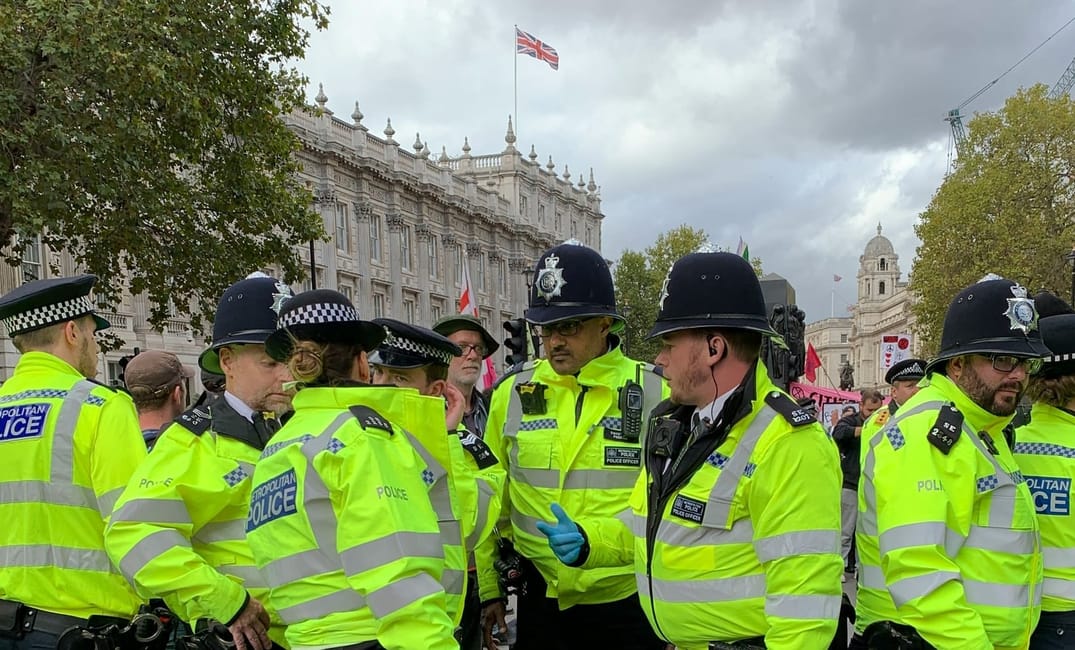Grace Couch | @GCouch99
Black History Month provides a platform for issues that matter all year round, including the relationship between the police and black communities. Account, a youth-led monitoring group from Hackney, has released a new report designed, conducted and written up by young people on this exact issue.
The report documents issues around trust, trauma and accountability with regards to local police. With black lives ‘mattering’ unfortunately a victim of debate, Account has produced their own evidence, which Head of Research, David Smith, says “people don’t expect young people to be armed with”.
Their findings have shone a light on a series of issues facing young people in Hackney. For example, they learned that many would not call on police to help them when they needed it, with a deep disconnect in trust. With black people being four times more likely to have force used against them, this is not a surprising discovery. What is useful, however, is the ability for this evidence to buttress the argument that police brutality is not simply a symptom of the US system. Many are quick to see this as an American issue – “because Britain isn’t racist” – but the facts speak for themselves.
“Stereotyped as gang members or criminals, they felt they couldn’t turn to police for help.” Worryingly, handcuff usage has increased in Hackney by 158% in the last three years, despite the Borough’s political leaders standing up against the issue.
Young Black Men in Hackney are 6 times more likely than their white peers to be stopped and searched. The report also found that Police in Hackney Stop and Search young Black men with a much lower ‘hit rate’ than white people. From August 2019 to July 2020 22% of searches in Hackney led to a positive outcome. For young Black men (aged 15-19) this figure was 14%. No wonder the researchers heard of “countless accounts of wrongful stop and search and accounts of excessive uses of force … the trauma and the pain this caused [and the] … first-hand the effect this was having on widening the gap between the police and the community.”
It’s hard to imagine that a vehement division of this kind won’t have long lasting effects on both the current community and generations after. The report describes how this is already taking effect, with too many young people growing up “blaming themselves for the injustices they face. They internalise the negativity that is all around them and turn that violence on themselves.” This presents a much more nuanced and humane understanding of the issue, challenging the government rhetoric that extending Stop and Search is the solution to violent crime in the capital.
Emmanuel Onapa, Campaigns Manager, told us “The project was created to give power to those marginalised by the system. Our key political demand is to give our communities safe spaces to build and heal from years of traumatic treatment at the hands of state institutions.”
The project focuses on the voices of young people experiencing these injustices, with ideas coming straight from those on the receiving end of this structural oppression. “Young people cannot be seen as second-class citizens anymore when it comes to policing. They need to be at the table, with a role to play in making decisions that affect their lives. This is crucial not just for the politics of race relations and policing, but for the future of our democracy itself”.
I couldn’t agree more. If you have followed any part of the Black Lives Matter movement, none of this information is surprising. However, whether it’s holding elected politicians to account or challenging your relatives over the dinner table, the evidence only fortifies the movement.
What is stop and search and what are my rights?
Thanks for reading our article! We know young people’s opinions matter and really appreciate everyone who reads us.
Give us a follow on Instagram, Twitter and Facebook to stay up to date with what young people think

